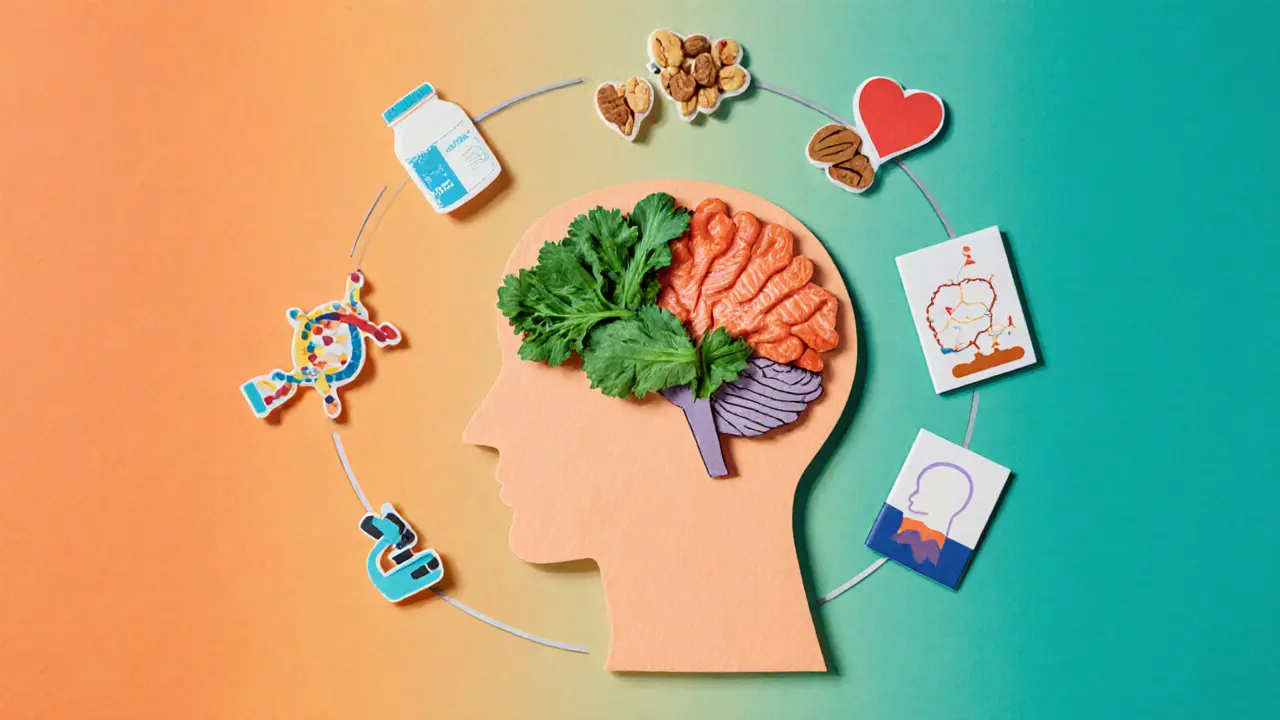Omega‑3 a duševní zdraví – co potřebujete vědět
When working with omega‑3, esenciální mastné kyseliny, které tělo nedokáže samostatně vytvořit a získává se hlavně z ryb, ořechů a semínek. Also known as omega‑3 mastné kyseliny, they play a crucial role in brain structure and chemical signaling. Omega‑3 is often mentioned alongside diet, inflammation control and mood regulation.
First, duševní zdraví, celkový stav psychické pohody, který zahrnuje schopnost zvládat stres, emoce a mezilidské vztahy is heavily influenced by nutrition. Omega‑3 supports neuroplasticitu, a process that enables the brain to reorganize synaptic connections – a key factor for learning new coping strategies in therapy. When the brain’s membranes contain enough DHA and EPA, the primary forms of omega‑3, inflammatory markers drop and serotonin pathways become more stable. In practice, people who regularly consume fish oil report lower scores on anxiety scales and better sleep, both of which are foundational for a resilient mind.
Jak omega‑3 souvisí s psychoterapií
Second, psychoterapie, systematický proces, ve kterém terapeut a klient pracují na změně myšlenek, emocí a chování can be potentiated by adequate omega‑3 intake. Clinical studies show that patients receiving EPA/EPA supplements alongside cognitive‑behavioral therapy often experience faster symptom reduction for depression and PTSD. The underlying triple is clear: omega‑3 → enhances → neuroplasticitu; neuroplasticita → facilitates → terapeutické učení; terapeutické učení → improves → výsledky psychoterapie. Moreover, omega‑3 helps regulate cortisol, the stress hormone, which means fewer spikes during challenging exposure exercises. For therapists, suggesting a modest dietary adjustment (e.g., two servings of fatty fish per week or a high‑quality supplement) becomes a low‑risk adjunct that can boost treatment adherence.
Finally, the broader context of výživa, soubor potravin a živin, které tělo přijímá k podpoře funkce a regenerace includes other nutrients that interact with omega‑3, such as vitamin D, magnesium and B‑vitamins. Together they form a nutritional matrix that supports mental health. When you combine a balanced diet with regular therapy sessions, the brain receives both external guidance and internal fuel. This synergy explains why many holistic programs integrate nutrition counseling with psychotherapeutic work. Below you will find articles that dive deeper into specific techniques, from Gottmanových metod pro páry po arteterapii, a také tipy, jak začlenit omega‑3 do každodenního života a maximalizovat tak přínos psychoterapie.
Výživa a duševní zdraví - jak jídlo formuje psychiku a energii
- Zikmund Hrouda
- zář, 1 2025
Zjistěte, jak výživa ovlivňuje psychiku, energii a duševní zdraví. Praktické tipy, klíčové živiny a srovnání stravovacích modelů pomohou zlepšit náladu i soustředění.
Dozvědět se více